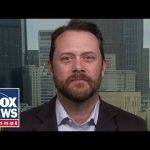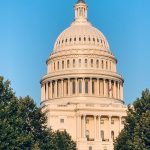In recent discussions about the state of American democracy, Republican Senator Ron Johnson has pointed fingers at the Democrats, claiming they simply don’t grasp what voters care about. He noted that while democracy is essential, it seems to be taking a backseat to other significant concerns. The senator pointed out that many voters are more interested in addressing issues like open borders, soaring inflation rates, and the weakening of international standing under President Biden’s administration. His take is clear: many Americans are genuinely worried about the daily struggles they face rather than lofty ideals.
The conversation heated up when Johnson expressed his belief that President Biden’s tenure would be remembered as disastrous, stating that January 20th—when a new administration could potentially take over—is a date many are eagerly awaiting. Instead of focusing on threats to democracy, the senator suggests voters are more attuned to the immediate impacts of policies that harm the fabric of American life, including inflation that has hit a 40-year high and an uncertain future as the global situation grows more volatile.
Congressman Byron Donalds chimed in regarding governmental spending, particularly concerning problems stemming from the Biden administration. He pointed out that Democrats have historically shown little concern about costs when they’re doling out money but suddenly expressed concern about the price tag of proposed reforms. Donalds argued that the cost associated with deporting millions of undocumented immigrants from the U.S. pales in comparison to the costs already incurred by keeping them here. He emphasized that responsible spending is crucial and that it is entirely possible to reverse the current administration’s “disastrous” course without breaking the bank.
When questioned about cost-cutting measures, Senator Johnson highlighted the ballooning federal budget. He cited that in 2001, federal spending was approximately $4.4 trillion, but after the pandemic, it has skyrocketed to over $7 trillion. He advocates for a return to pre-pandemic spending levels, adjusted for inflation and population growth, which could save a significant chunk of taxpayer dollars. His plan is to tackle spending without compromising necessary services, which he believes is both reasonable and crucial for restoring fiscal health.
On immigration reform, there appears to be a divergence of opinions within the party. Donald maintained that the priority should be securing the border first, followed by a more rational immigration policy that prioritizes American workers. The conversation hinted at a potential rift in Republican stances regarding H-1B visas, as some members call for expansions that could undercut American job seekers. Both Johnson and Donalds agree that the border situation must be dealt with decisively before any discussions about labor visas take place, as safeguarding American jobs should always come first.
As they wrapped up their discussion, there remained a sense of urgency among lawmakers. The need to protect American interests both at home and abroad is paramount, and while addressing issues of immigration and spending may appear as a tangled web, the thread of fiscal responsibility and national security runs strong. For these lawmakers, the stakes are high and their resolve to enact change is firm. It’s clear that as they look forward, their focus will remain sharp on putting American interests above all else.




